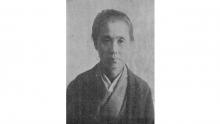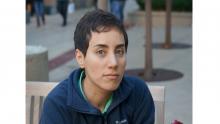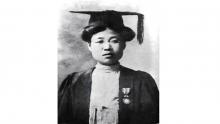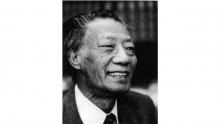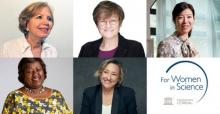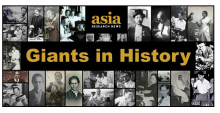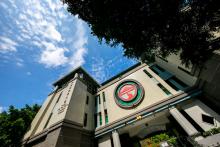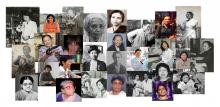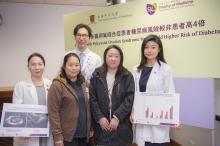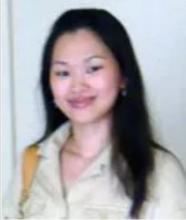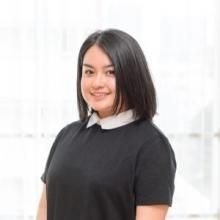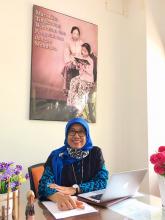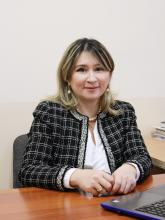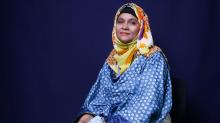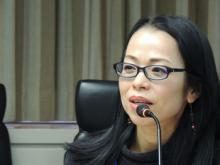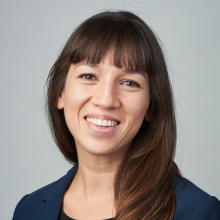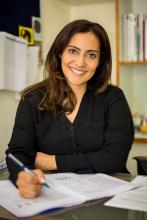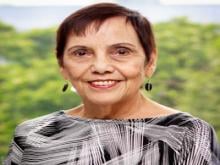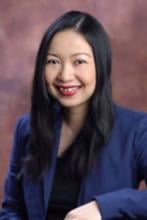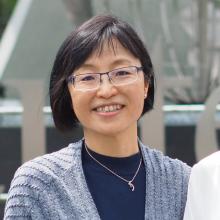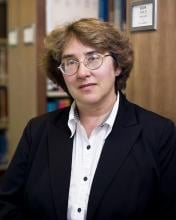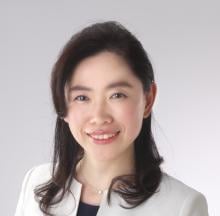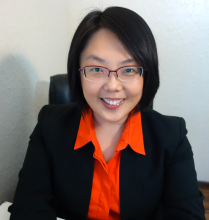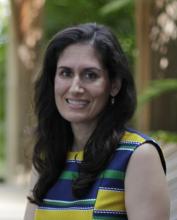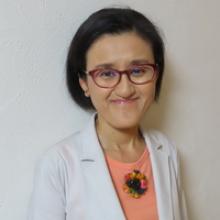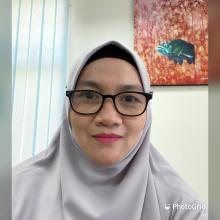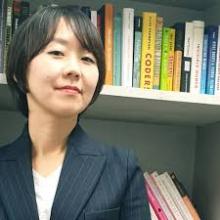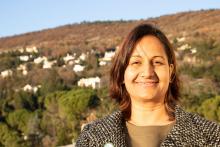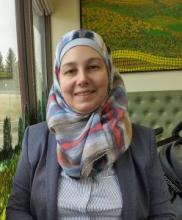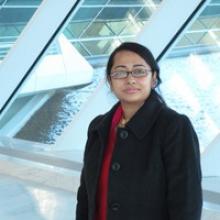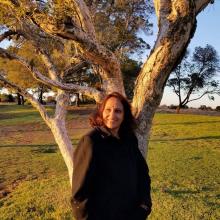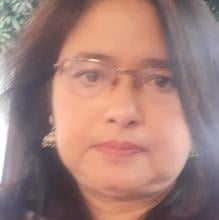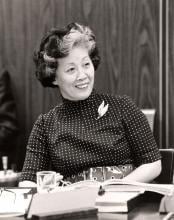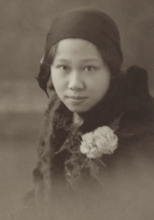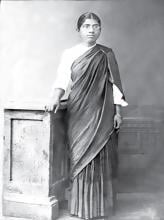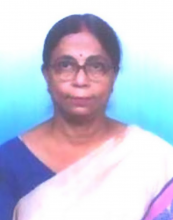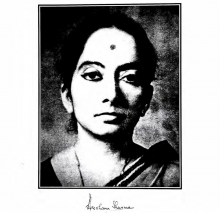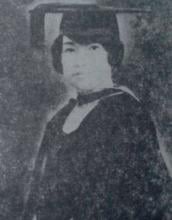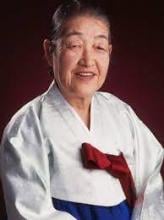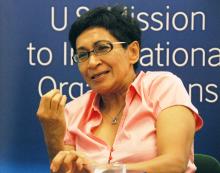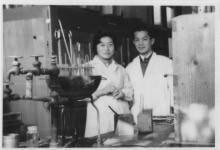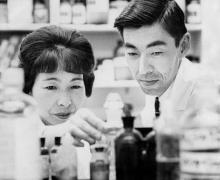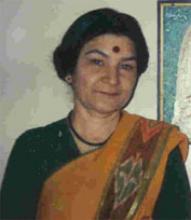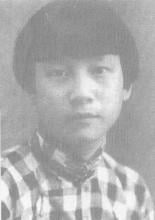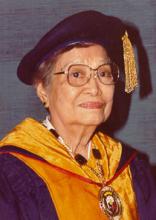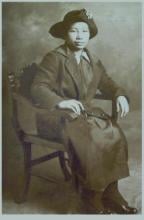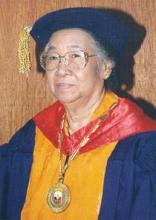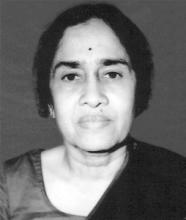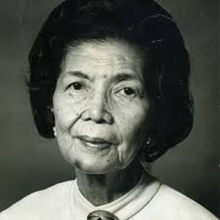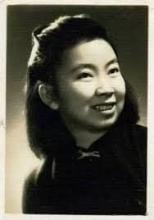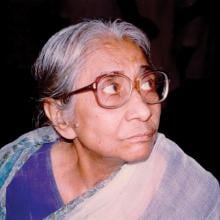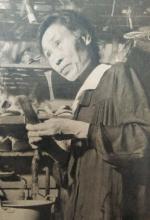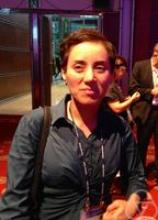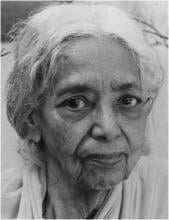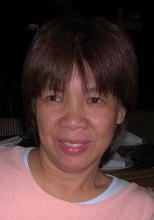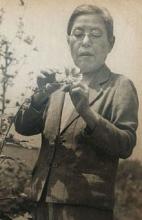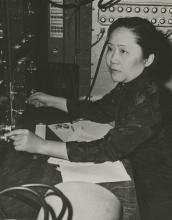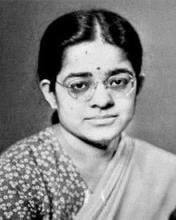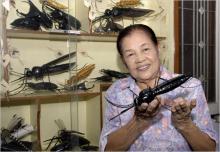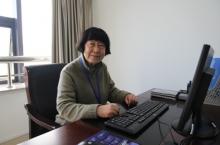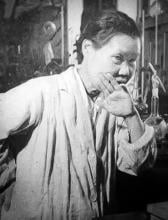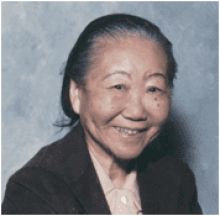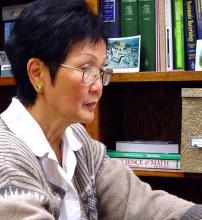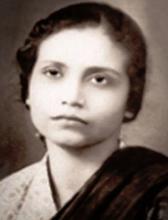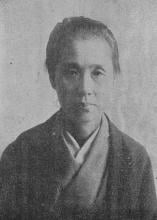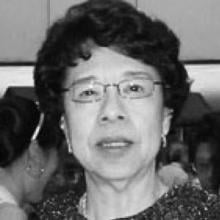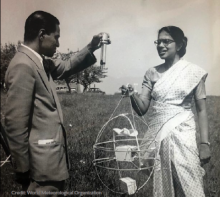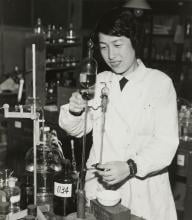Women
News
24 Feb 2022
Giants in History: Ogino Ginko (3 March 1851 – 23 June 1913) was the first registered female doctor to practise modern medicine in Japan. After contracting gonorrhoea from her first husband and being embarrassed from having to seek medical attention from male doctors, Ginko resolved to become a doctor to help women in similar situations.
22 Feb 2022
• Your chances of getting resuscitated by a bystander in Asia if your heart suddenly stops while in a public place depends on whether you’re a man or a woman.
• Across nine Asian communities, in public locations, the bystander CPR rates were 31.2 per cent for females and 36.4 per cent for males.
• For women, the chances of receiving bystander CPR when suffering a cardiac arrest in a public out-of-hospital setting is lower than for men; in homes or private places, the likelihood is reversed.
11 Feb 2022
Helping elevate the careers of over 50 women researchers, the partnership has recognized prize-winning science from more than 20 countries in the Global South since 2013
12 Jan 2022
Giants in History: Mathematician Maryam Mirzakhani (12 May 1977 – 14 July 2017) was the first and only woman and Iranian to date to win the Fields Medal in 2014 for her work on curved surfaces.
02 Dec 2021
Giants in History: Esther Park (1877-1910), born Kim Jeom-dong, was the first female Korean physician to practise modern medicine in Korea.
29 Nov 2021
Lingnan University (LU) in Hong Kong will confer honorary doctoral degrees upon four distinguished individuals in recognition of their outstanding achievements in their respective professions and valuable contributions to the well-being of society.
23 Nov 2021
Giants in History: Min Chueh Chang (10 October 1908 – 5 June 1991) was a Chinese-American biologist who studied fertilization in mammalian reproduction.
05 Nov 2021
Quick seawater test may reveal health of corals, Infectious disease caused by a new nairovirus, Converting CO2 into useful compounds and Automated COVID-19 diagnosis from chest scans all in the November Editor's Choice. Plus our latest podcast: Gender and Conflict in Myanmar.
13 Oct 2021
Miniature brains mimic critical features of Parkinson's disease, better weather forecasting with satellite data, light does the twist for quantum computing, new insights into embryonic development & elevating women leaders in Myanmar in the October Editor's Choice. Plus don't forget submissions for Asia Research News 2022!
01 Oct 2021
Paris, 29 September — UNESCO and the L'Oréal Foundation are unveiling the winners of this year’s International Prize for Women in Science, which honours five eminent women scientists with exceptional careers from the five regions of the world, as it has done annually since 1998.
27 Sep 2021
Giants in History: Rajeshwari Chatterjee (24 January 1922 – 3 September 2010) was the first female engineer from Karnataka in India. Chatterjee earned a Master’s degree and doctoral degree from the University of Michigan on a scholarship awarded by the Delhi government
14 May 2021
Many hurdles remain to achieve gender equality in Myanmar politics and society at large. Research supported by Canada’s Knowledge for Democracy Myanmar Initiative is identifying opportunities to close the gap.
12 May 2021
A survey conducted by Lingnan University in Hong Kong's (LU) Department of Cultural Studies finds 65 per cent of lesbian and bisexual female respondents perceived a glass ceiling in financial services in Hong Kong. The research team noted an urgent need for employers to build inclusive workplaces for LGBT+ (lesbian, gay, bisexual, transgender and related communities) employees.
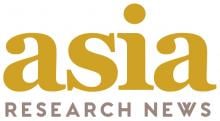
11 Feb 2021
ARN's February newsletter features research about catalyzing plastic recycling, the mental health toll of the COVID-19 pandemic, antiperovskites and oolong tea. In honor of International Day of Women and Girls in Science, we also have tips for addressing gender bias in STEM communications, and inspirational stories about pioneering female scientists from our Giants in History series. Read on...
10 Feb 2021
To celebrate International Day of Women and Girls in Science on Feb. 11, we are highlighting Giants in History - Asia's Women in Science, as well as tips for boosting women's voices in science communication and other organizations working to support women in research.
28 Jan 2021
COVID-19 has led to psychological distress among one in three adults, large-scale meta-analysis by researchers at Duke-NUS Medical School, Singapore, reveals.
24 Jan 2021
Be included in a tip sheet for reporters. A communications service from Asia Research News.
20 Dec 2019
A recent study conducted by the Faculty of Medicine at The Chinese University of Hong Kong (CUHK) revealed that Chinese women with polycystic ovary syndrome (PCOS) are at 4-fold higher risk of developing type 2 diabetes mellitus (T2DM) compared with those without the disorder, and also have younger onset of diabetes.
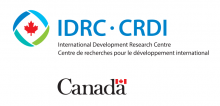
07 Aug 2019
Sexual violence against women and girls in rural India remains a largely unaddressed, hidden issue.

06 Aug 2019
A research project aims to explore links between workplace violence with women’s position at home and inform on policies, interventions, and social dialogue at the community, enterprise, sector, and/or national level.

02 Nov 2018
UM researcher Dr. Chai Lay Ching was awarded the L'Oreal-UNESCO for Women in Science National Fellowship for her research in developing a real-time method to detect dangerous bacteria causing food-borne diseases in raw chicken.
21 Apr 2017
New developments in cervical cancer screening and vaccination against human papillomavirus (HPV) infection, a causal agent for cervical cancer provide new opportunities for the prevention of this disease. HPV testing as oppose to the conventional pap smear is now recommended while 3 HPV vaccines are now approved to combat HPV associated diseases.

11 Feb 2015
Talented Nigerian, Sudanese and Vietnamese scientists honored at AAAS Annual Meeting

01 Feb 2011
The IDRC-funded project Trade, Gender and Equity in Latin America assessed the impact of trade patterns on female labour. The research revealed that, overall, trade has not resulted in more jobs for women, nor has it narrowed the income gap between men and women.
07 Oct 2009
THIRTY years of Asian women's involvement in Britain's workplace struggles is celebrated in a new exhibition at the Women's Library in London.

27 Sep 2009
Women in Arab countries are making human rights history as they break down barriers to being treated as full citizens in their own countries. In the past few years, women in Algeria, Egypt, and Morocco married to foreigners have won the right to convey their citizenship to their children.

21 Nov 2008
Some interest facts on Okinawa is how 4 different languages have developed in such a small geographical area. Okinawa is a perfect field in which to consider the question of "what is language?" There is also the tradition in which only women have spiritual vocations and perform Shinto rituals.
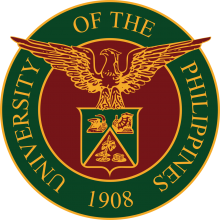
30 Oct 2007
The article analyzes two cases of domestic violence involving Filipino women in Australia, Rosalina Canonizado and Annabel Strzelecki. Interviews of their close relations and newspaper representations reveal sexual and racial "othering" of the women in the discourse of "mail-order bride."

11 May 2007
The publication “Finding the Missing Women: Trade Issues from a Gender Perspective” tackles the effects of trade liberalization and promotes gender perspective in its analysis in order to recognize the roles and needs of women in the industry.

05 Apr 2006
The Four Faces of Woman Dance-Exhibit is a celebration of women’s achievements, strengths, and qualities in commemoration of International Women’s Month 2006, and also a significant way to usher in another milestone in the year following the centennial of the Philippine feminist movement. Pictures attached.
Events
Sorry, no events coming up for this topic.
Researchers
Assoc Prof Tan leads the Photonics Devices and Systems Group at Singapore University of Technology and Design (SUTD). Her interest lies in experimental optical physics, pertaining to the study of both nonlinear and linear optical phenomena, nanophotonics and quantum optics. One of the potential applications of her research is enhancing the transmission of data via the Internet by improving reliability and lowering costs.
Professor Nilanjan published a study which yielded findings on how individuals with a higher socioeconomic status (SES) are more likely to have jobs that provide opportunities for remote work to be performed, which allows for social distancing during the pandemic. Her study also explores how likely individuals with low SES will begin to break social distancing measures and be exposed to a greater risk of infection, but those with high SES are able to circumvent this problem.
As a young research practitioner, I’ve been working with more than 1,000 female college students who participate in study abroad programs. As a women’s school graduate, I believe in the power of female education in women’s school while there are sceptical views of its existence.
Women leadership to support access of sexual and reproductive health issues and stunting for women and youth very important issues in Indonesia as well as violence against women and stop child marriage. Particularly in Indonesia religious issues and culture are important to be stressed in these issues besides government policy.
For 20 years, I have been engaged in research in the development of compositions and study of the properties of heterocomposite polymer materials used in mechanical engineering. Currently, a performer in the applied joint Uzbek-Indian project “Improving the mechanical and tribological properties of polymer composite”.
Dr. Hasibun Naher is a mathematician working on numerical models related to natural disasters including storm surges, tsunami simulation, earthquakes, and energy. She is also interested in issues related to women in STEM, active learning, sustainable mathematics education and sustainable development using mathematical modeling,
My research on how medieval Japanese royal women strategized to overcome disparity is relevant in a time when COVID-19 has exposed ongoing problems tied to the vulnerability of (Japanese) women and gender stereotypes (e.g. recent remarks by Tokyo Olympics chief Mori).
My research focuses on the intersection between mobility, public space, and technological innovation. One of my current projects explores the role of the gig economy for women’s empowerment in Cambodia, Myanmar, and Thailand. I am especially curious to see how home-based gig work relate street vending, a typically women-based activity.
I have nearly two decades of professional experience studying the changing trends in the world of work. This includes a specialized focus on how trends like technology, urbanization, restructuring of trade into global value chains, migration and climate change affect women’s work, and the opportunities and challenges that women face to equal and productive participation in labour markets.
In my research on urban poor communities and families, I have highlighted the leadership roles of women in organizing and demanding services. I have written many academic and advocacy articles to show why passage of the Reproductive Health Bill in 2012 was essential especially for women’s wellbeing.
National University of Singapore
I work at the intersection of Business, Medicine and Environment. Many of the world’s current problems are best addressed from multiple perspectives. I examine issues ranging from sustainable development, pandemics, diversity, environment, social innovation and philanthropy, and suggest how we can do better.
The Asian Institute of Technology
My research is on women migrant factory workers as well as women in fisheries in the Mekong region, Thailand, where I have been studying for the last decade through various research projects. These group of women workers are the most dynamic as well as vulnerable in the region.
For the past twenty years, I have led a research team at Tufts University that conducts randomized controlled field experiments on various interventions designed to improve conditions of work in global supply chains, particularly in industries such as apparel dominated by women. Our ranges from social compliance to health interventions.
Tohoku University
I am engaged in the development of a new device for embryo evaluation which measures embryo oxygen consumption and a new medication for infertility. Recently, I focused on causative genes of disorders of sex development and searched pathogenic variants using a whole-genome reference panel constructed by Tohoku Medical Megabank Organization.
I am an Assistant Professor in Health Services Policy and Management at the University of South Carolina Arnold School of Public Health, US. As a health services researcher and a rural health advocate, I am driven to advance rural health equity via productive, insightful research collaborations. My work applies global and hyper-local perspectives (rural-urban, county-level, state-level variations) building statistical models to examine rural healthcare delivery on outcomes, access, and welfare of women.
Associate Professor Sophia Archuleta is the Head and Senior Consultant of the Division of Infectious Diseases at the National University Hospital, Singapore.
Masako Tanaka is a practitioner, activist and academic focusing on gender and migration issues in Japan. She is a professor at the Department of Global Studies at Sophia University, Japan.
Universiti Malaysia Sabah
Associate Professor Sitti Raehanah Muhamad Shaleh is the director of Borneo Marine Research Institute at Universiti Malaysia Sabah.
So Yeon Leem is a professor at Sookmyung Women’s University, South Korea, and an expert in Women in STEM and cosmetic surgery practices in the country.
Dr Anisa Qamar is a professor in Physics in the Department of Physics, University of Peshawar, Pakistan. She is also the President of Pakistan Physical Society.
Dr. Hemu Kharel Kafle is the Founder and Director of Research at Kathmandu Institute of Applied Sciences (KIAS), Nepal, and a scientist at the Centre for Water and Atmospheric Research (CENWAR) within it.
Dr. Mais Aljunaidy is an expert in women's mental health and an instructor at the Department of Psychology, Bilkent University, Turkey.
I am a socio-cultural anthropologist and faculty member at Jahangirnagar University, Bangladesh, pursuing my graduate research on Rohingya refugee policy at University of Wisconsin, Milwaukee, USA.
1. An Applied Statistician and Operation Research specialist with 35 years of
experience in academic teaching, corporate consultancy, and professional
training.
2. Conducted sessions for women and senior citizens on mental health and coping skills.
3. An awardee of the Statistical Capacity Building award by the World
Bank.
4. Published technical articles in reputed journals as well as authored books and book chapters
5. Published author with nearly 3600 articles in leading newspapers and magazines in India.
Shoirakhon Nurdinova is currently a senior lecturer at Namangan State University, Uzbekistan. Her research interests focus on happiness economics, gender issues, and labor migration from Central Asia.
Jyoti U. Devkota is a Full Professor of Statistics in the Department of Mathematics in Kathmandu University, Nepal. Her research focus is on the development and application of statistical methodology to solve problems in renewable energy, population and health.
Giants in history
Irene Ayako Uchida’s (8 April 1917 – 30 July 2013) strides to understand genetic diseases such as Down syndrome paved the way for early screening of chromosomal abnormalities in foetuses.
Maggie Lim (5 January 1913 – November 1995) was a Singaporean physician who promoted family planning and expanded the access to clinics to improve the quality of life for mothers and children in Singapore’s early days.
The founder of the Adyar Cancer Institute in India, Muthulakshmi Reddy (30 July 1886 – 22 July 1968), fought to uplift women and girls from impoverished situations.
Maharani Chakravorty (1937 – 2015) was one of India’s earliest molecular biologists whose research paved the way for advances in the treatment of bacterial and viral infections.
Archana Sharma (16 February 1932 - 14 January 2008) conducted research into plant and human genetics that expanded the understanding of both botany and human health. In relation to botany, she uncovered the means by which asexually-reproducing plants evolve into new species.
The first Thai woman to receive a degree in medicine, Margaret Lin Xavier (29 May 1898 – 6 December 1932), is best remembered for her compassion towards her less privileged patients.
Hwang Hye-seong (5 July 1920 – 14 December 2006) was an expert on Korean royal court cuisine, the knowledge of which she dedicated her career to keeping alive. Formerly an assistant professor of nutritional science, Hwang met the last kitchen court lady in the Joseon Dynasty Han Hui-sun and, from her, learned about the culinary traditions of the royal court.
Malaysia’s first astrophysicist, Mazlan binti Othman (born 11 December 1951) was instrumental in launching the country’s first microsatellite, and in sending Malaysia’s first astronaut, Sheikh Muszaphar Shukor, into space.
Tsuneko (7 June 1933) and Reiji Okazaki (8 October 1930 – 1 August 1975) were a Japanese couple who discovered Okazaki fragments – short sequences of DNA that are synthesized during DNA replication and linked together to form a continuous strand.
Husband and wife team, Kimishige (3 December 1925 – 6 July 2018) and Teruko Ishizaka (28 September 1926 – 4 June 2019) discovered the antibody class Immunoglobulin E (IgE) that triggers allergic reactions. They also discovered that IgE antibodies attach to white blood cells, known as mast cells, releasing histamine, which causes allergic reactions.
A pioneer of bio-organic chemistry, Darshan Ranganathan (4 June 1941 – 4 June 2001) is remembered for developing a protocol for synthesising imidazole, a compound used to make antifungal drugs and antibiotics. Widely considered India’s most prolific researcher in chemistry, she also published dozens of papers in renowned journals on protein folding, molecular design, chemical simulation of key biological processes, and the synthesis of functional hybrid peptides and nanotubes.
Palaeontologist Yichun Hao (1920 – 2001) co-authored the first Chinese textbooks on palaeontology and micropalaeontology. Her research on Foraminifera – amoeba-like organisms with shells – was vital for the exploration and utilisation of marine energy resources.
Ground-breaking cancer researcher Kamal Jayasing Ranadive (8 November 1917 – 11 April 2001) advanced the understanding of the causes of leukaemia, breast cancer and oesophageal cancer through the use of animal models. She was also among the first to recognise how susceptibility to cancer is linked to tumour-causing interactions between hormones and viruses.
The research of Filipino pharmaceutical chemist Luz Oliveros-Belardo (3 November 1906 – 12 December 1999) focussed on essential oils and other chemicals derived from native Philippine plants.
Filipina chemist María Orosa (29 November 1892–13 February 1945) fought malnutrition and food insecurity in the Philippines by devising over 700 culinary creations including Soyalac, a nutrient rich drink made from soybeans, and Darak, rice cookies packed with Vitamin B1, which could prevent beriberi disease caused by Vitamin B1 deficiency. She was also a partisan of the guerrilla movement resisting Japanese occupation during World War II, and died after being struck by shrapnel while working in her laboratory during the Battle of Manila.
Eminent Filipina scientist and educator Clara Lim-Sylianco (18 August 1925 – 23 July 2013) is remembered for her extensive research on mutagens – often-carcinogenic agents that permanently alter genetic materials such as DNA – antimutagens and bioorganic mechanisms.
In 1939, biochemist Kamala Sohonie (18 June 1911 – 28 June 1998) became the first woman to be accepted into the Indian Institute of Science (IISc).
Fe Villanueva del Mundo (27 November 1911 – 6 August 2011) was a Filipina paediatrician who founded the Philippines’ first paediatric hospital.
Chinese physicist Xie Xide (19 March 1921 – 4 March 2000) was an influential educator and one of China’s pioneer researchers of solid-state physics.
Indian organic chemist Asima Chatterjee (1917 to 2006) studied the medicinal properties of plant products, especially compounds known as vinca alkaloids.
Chika Kuroda (24 March 1884 – 8 November 1968) was a Japanese chemist whose research focussed on the structures of natural pigments.
Mathematician Maryam Mirzakhani (12 May 1977 – 14 July 2017) was the first and only woman and Iranian to date to win the Fields Medal in 2014 for her work on curved surfaces.
Janaki Ammal Edavalath Kakkat (4 November 1897 – 7 February 1984) was an Indian botanist who studied plant chromosomes and genetics.
Susan Lim (14 February 1952 – 2 August 2014) was a Malaysian parasitologist who specialized in studying a class of flatworms, the Monogeans, which are parasites of fishes.
Kono Yasui (16 February 1880 – 24 March 1971) was a Japanese botanist who researched the genetics of poppies, corn and spiderworts and surveyed the plants that had been affected by the nuclear fallout after the atomic bombings of Hiroshima and Nagasaki.
Chien-Shiung Wu (31 May 1912 – 16 February 1997) was an experimental physicist who made several important contributions to nuclear physics. Wu worked on the Manhattan Project – a top-secret program for the production of nuclear weapons during World War II and helped to develop a process for separating uranium into U235 and U238.
Rajeshwari Chatterjee (24 January 1922 – 3 September 2010) was the first female engineer from Karnataka in India.
Rampa Rattanarithikul is a Thai entomologist who is a leading expert on mosquitoes. Rattanarithikul began her scientific career as a technician collecting mosquito specimens for the United States Operations Mission (USOM) malaria control program. Throughout her career, she discovered 23 species and officially described 13 others.
Meemann Chang (born 17 April 1936) is a Chinese palaeontologist who studied the fossils of ancient fish to understand the evolution of life. By examining fossils, she uncovered new insights on how vertebrates, animals with a backbone, migrated from the sea and became adapted to live on land.
Michiyo Tsujimura (17 September 1888 – 1 June 1969) was a Japanese agricultural scientist and biochemist recognized for her research of green tea components.
Tsai-Fan Yu (1911 – 2 March 2007) was a Chinese-American physician and researcher who was the first female full professor at Mount Sinai School of Medicine. She discovered that gout, a condition characterized by the painful inflammation of joints, was caused by elevated levels of uric acid in the bloodstream.
Roseli Ocampo-Friedmann (23 November 1937 – 4 September 2005) was a Filipino-American scientist whose research focused on cyanobacteria and microorganisms that inhabit extreme environments.
Bibha Chowdhuri (1913 – 2 June 1991) was an Indian physicist who researched on particle physics and cosmic rays. In 1936, she was the only female to complete a M.Sc. degree at the University of Calcutta.
Ogino Ginko (3 March 1851 – 23 June 1913) was the first registered female doctor to practise modern medicine in Japan.
Gloria Lim (1930-2022) was a mycologist from Singapore who studied tropical fungi. One of the first students to attend University of Malaya when it was founded in 1949, she went on to become the first female Dean of the Faculty of Science at the University of Singapore.
Anna Mani (23 August 1918 – 16 August 2001) was an Indian meteorologist who contributed significantly to the understanding of solar radiation, ozone and wind energy by developing a wide range of measurement tools. One of India’s pioneering female scientists, Mani excelled in the male-dominated area of meteorology and became the Deputy Director-General of the India Meteorological Department.
Japanese geochemist Katsuko Saruhashi developed the first method and tools for measuring carbon dioxide in seawater


